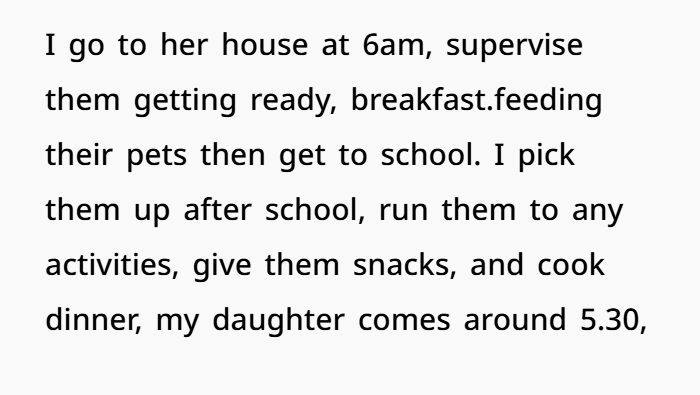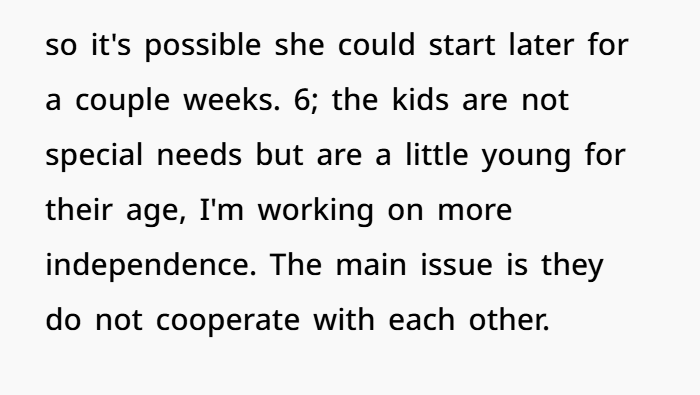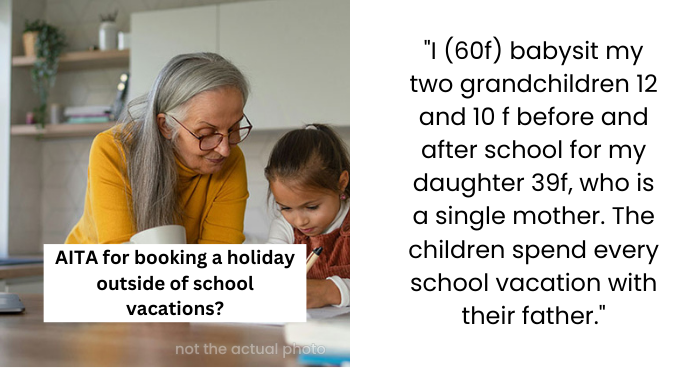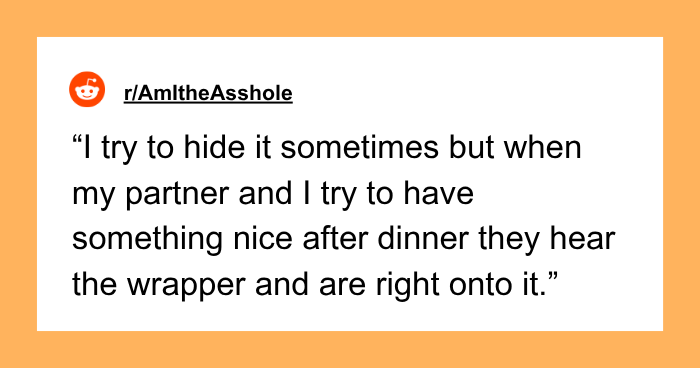Mom Assumed They’d Always Be There to Watch the Kids—Until They Weren’t
A grandmother who takes care of her two grandkids every day got into a fight with her daughter when she planned a personal vacation during the school year. Even though she told her daughter about the trip months ago, the trip doesn’t fit with the normal school holiday schedule, so the daughter wants her to cancel or reschedule the trip. But the grandma, who babysits, runs kids to and from school, makes meals, and does other things for free, carefully planned her trip to meet her own needs: cheaper prices, better weather, and her sister’s availability.
The daughter is now mad and says her mother is not caring about her. And the grandmother thinks she’s been given enough. All she wants is a well-deserved break that she can plan herself. As things get worse, she can’t help but wonder: Is she the jerk for putting herself first this once, or is she just finally setting limits after years of selfless support?
This woman is happy to babysit her grandchildren
But she didn’t realize how upset her daughter would be about her deciding to take a vacation while the kids were in school










At first glance, it might look like an easy matter of family schedules. However, this situation is about a lot more than that. It’s about emotional work, parental entitlement, setting limits, and the unspoken expectations that women, especially grandmothers, often have.
The woman in question (60F) does not babysit part-time. She is the main person who takes care of her kid. She gets there at 6 a.m. every weekday to get her 10 and 12 year old grandkids ready for school. She feeds them, takes care of their pets, drives them around, makes snacks, cooks dinner, and even feeds her daughter when she gets home. This isn’t a side favor; you have to be there for them all the time, mornings, evenings, and sometimes even weekends and overnights.
Still, she doesn’t ask for money. Just the bare necessities: help with food and a break now and then.
That’s what makes this argument so heated.
She finally made a plan that worked for her after years of planning her life around her daughter’s custody schedule—only taking trips when the kids were with their dad during school breaks. A trip that wasn’t during school breaks because it would be cheaper, the weather would be nice, and her sister would be free.
She was clear with her daughter when she booked it months ago that it would happen during the school year. The daughter knew about it and said she would “work it out” at the time. Now, months later, with four months to go, the daughter is mad because she thought it would happen during the normal break and thinks her mother is being selfish.
But let’s take a break.
Is it selfish to finally make a choice based on your own wants and life after helping someone for years without getting anything in return? Or is it finally a boundary?
As per Psychology Today, one of the hardest emotional things for older parents is setting limits with their adult children. This is especially true for women who have spent their whole lives caring for others. But without those limits, emotional exhaustion, anger, and burnout are sure to happen.
Let’s also not ignore the context:
- The daughter is a single mother, yes—but not without options.
- The children’s father, though out of state, takes them during every school vacation, giving the daughter regular breaks.
- The son and daughter-in-law live nearby and have children at the same school, meaning carpooling or pickups are feasible.
- The daughter’s workplace offers flexibility, and she could likely adjust her schedule.
This is not a case of leaving someone with no help at all. In this case, someone is briefly refusing to adapt because they’re used to not having to.
That’s the real problem: a sense of entitlement that looks like dependency.
Although the daughter may be having a hard time, she thinks that her mother has endless time, energy, and availability. AARP calls this way of thinking the “grandparent caregiver trap.” It happens when older family members take on the role of full-time caregivers without getting any official recognition, pay, or time off.
The grandmother doesn’t want you to stop helping. She’s not pulling away her love or turning her back. She’s just telling you, “I need two weeks off, and I gave you four months to figure it out.”
Still, her daughter wants her to change the trip.
Why? Because, like many family caregivers, the grandmother has taught others to depend on her, and people don’t want her to break that circle.
But let’s be honest: grandparents don’t watch your kids for free. They’re family, not employees. When they offer to help, it’s a gift, not a duty. They don’t have to explain why they need time off when they ask for it.
Off-season vacations are a lot cheaper, especially for older people who are retired and don’t have much money saved up. When schools are out, travel prices can go up by twice as much. That, along with the better seasonal weather and her sister’s availability, makes it clear that she didn’t pick this trip at random; it was well-thought-out and fair.
The daughter seems angry not because she didn’t notice, but because she thinks you don’t care about her and depends on you emotionally. Things would be the same for her, she thought. When she was given the information, she didn’t think about it. Now she’s putting the blame on someone else instead of taking responsibility.
If this grandmother stays strong, is she a jerk? Not at all.
She’s showing the kind of emotional growth that a lot of people have trouble with. She talked early on. For years, she met her daughter’s needs. Now she wants the same thing in return—a short-term change, not a lasting withdrawal.
It’s not being selfish. It’s taking care of yourself. And they deserve it.
Later, the grandmother clarified some information about her situation













